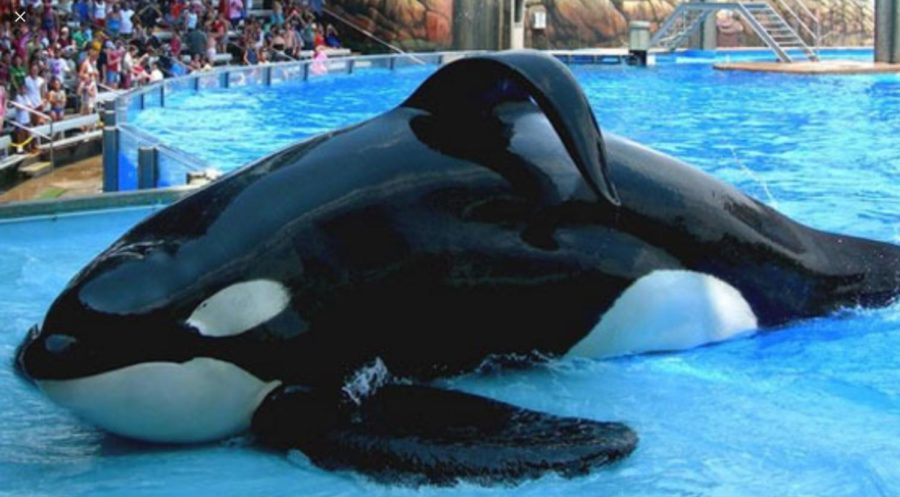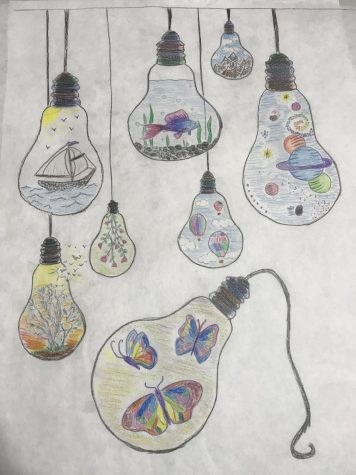The Abuse Behind Marine Parks and Aquariums
March 8, 2018
Marine parks like Seaworld are part of a billion-dollar industry that keeps marine mammals, such as dolphins, seals and orcas, in cruel conditions. These animals are kept in small tanks where they suffer and swim around pointlessly. The tricks they are forced to perform are unnatural and potentially harmful for their bodies. If animals get hurt, they are still forced to perform and do tricks since “the show must go on.”
In captivity, these normally social animals can suffer from depression as a result of isolation from other mammals and from separation from their families. Some mammals also suffer from injuries and diseases caused by being confined in a tank for the majority of their lifetime. Often, when some animals are attacked by other animals, they cannot escape because they are in such small tanks.
Particularly for wild orcas, captivity poses major threats to animal lifespan. Orcas in the wild can live for decades, while the average age of orcas in captivity is only 9. At U.S. SeaWorld parks, not a single orca has died of old age. At least 44 orcas have died from causes ranging from severe trauma to intestinal gangrene. In addition, more than sixty bottlenose dolphins died at SeaWorld parks in just ten years, including 16 babies that were stillborn.
Sea mammals are not supposed to be domesticated and perform unnatural tricks; they are born to roam freely in their vast, natural habitat. In the wild, orcas and dolphins live in complex social groups and swim very long distances. However, when these innocent animals are kept in tanks that are the equivalent to a human living in a bathtub, their lives become a monotonous drag of endlessly swimming in circles. Their lives have little purpose but for the amusement of the humans watching them.
Orcas and other dolphins navigate by echolocation. In pools, the reverberations from their own sonar bounce off the walls which can drive them insane.
Prominent oceanographer Jean-Michel Cousteau compared the keeping of orcas in tanks to “a person being blindfolded in a jail cell.”
Captive orcas suffer as much physically as they do psychologically. In the majority of cases, male orcas suffer from collapsed dorsal fins– an injury that rarely happens to orcas in the wild. In other cases, orcas have destroyed their teeth by chewing on metal cage bars.
To help stop the horrible treatment of marine mammals, you can refrain from visiting marine parks, zoos, or aquariums that keep ocean animals in captivity, support legislation that prohibits the capture of or restricts the display of marine mammals, and support groups and organizations that aim to shutdown the operation of cruel marine parks. Similarly, encouraging our aquariums to rehabilitate and release injured wildlife and to refuse breeding and taking in more captive animals are the first steps towards reducing this animal abuse.








Gabriel Pickard • May 3, 2018 at 2:08 pm
I believe that animals who live in water parks are abused, but some of the animals living in the water parks are endangered. If we did not put the endangered animals in aquariums, they could go extinct and we would have no way to recover them.